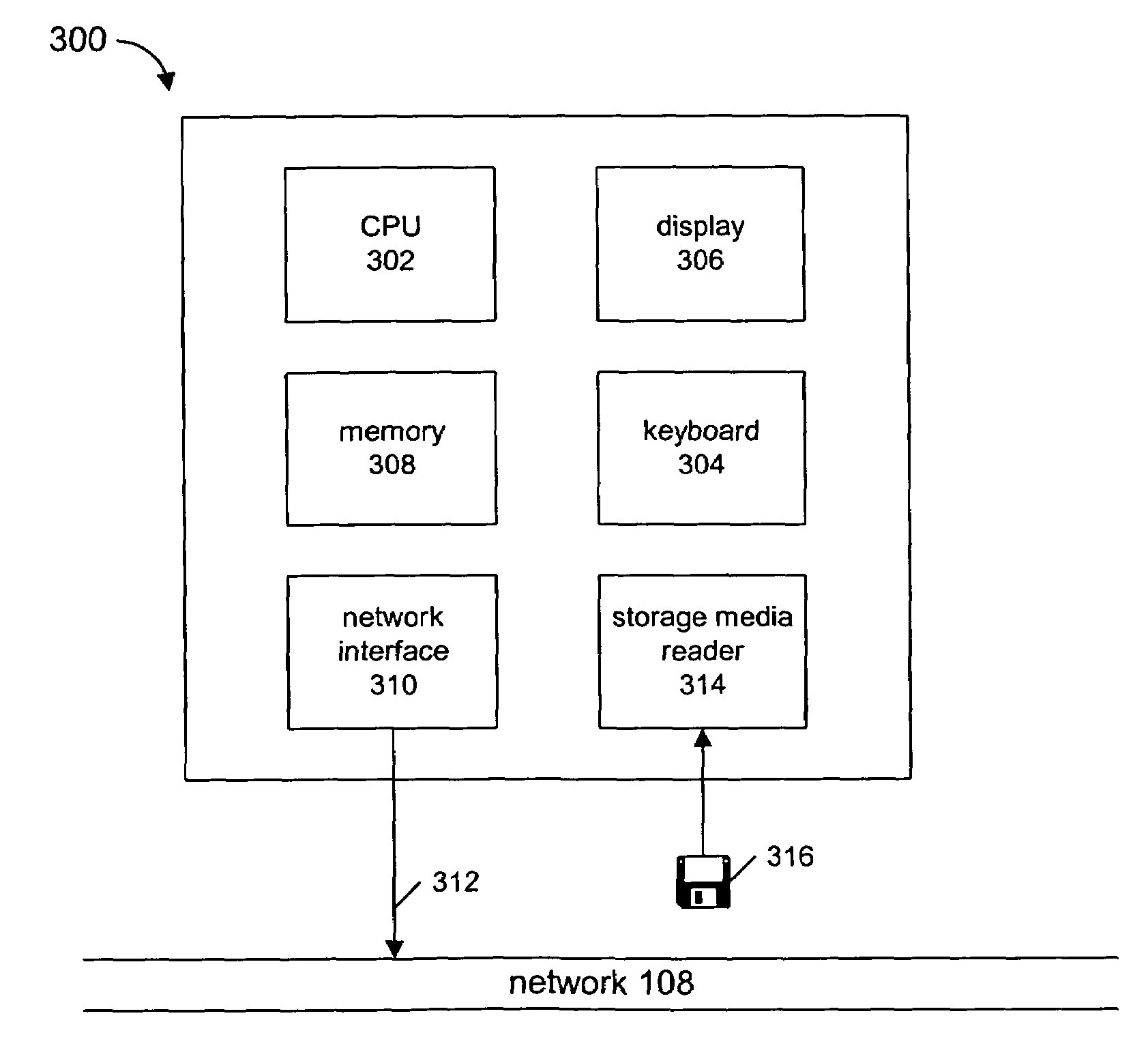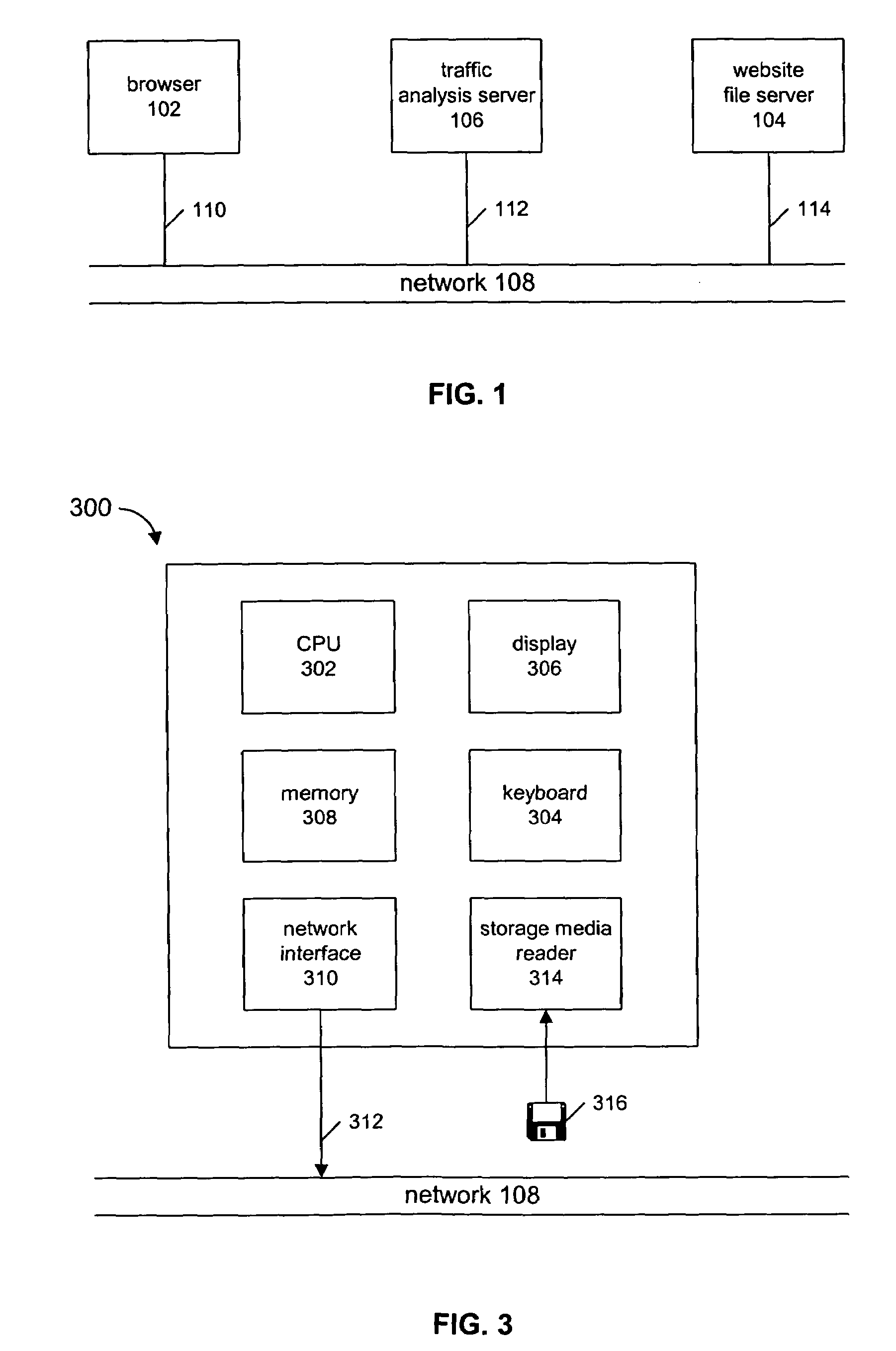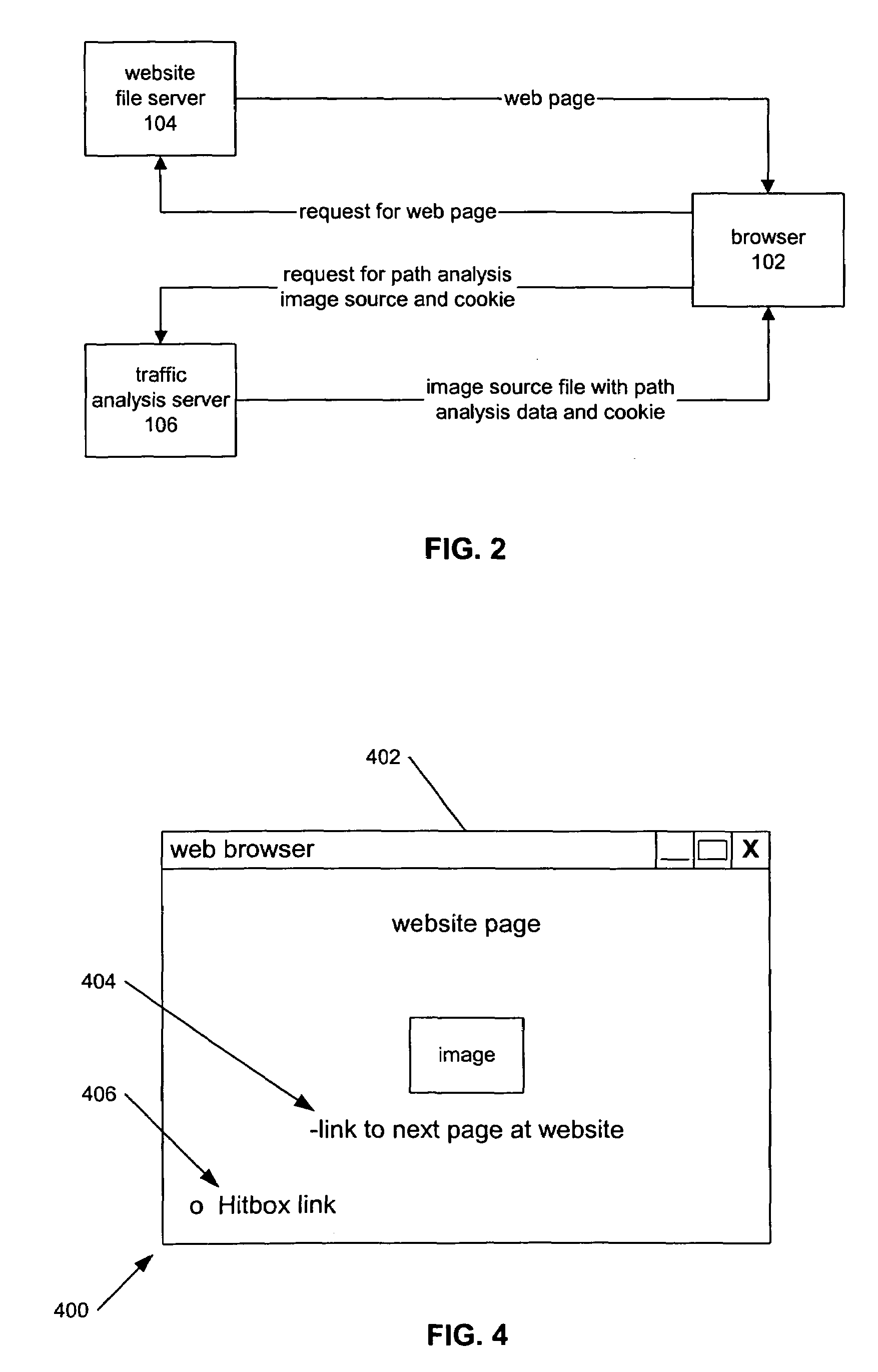Internet website traffic flow analysis
a technology for traffic analysis and internet websites, applied in error detection/correction, instruments, digital computers, etc., can solve problems such as limiting the appeal of website traffic analysis software that must be installed, limiting and proxy servers or web caches that often complicate the process of creating log files in response to html requests. , to achieve the effect of reducing the time it takes to understand the impa
- Summary
- Abstract
- Description
- Claims
- Application Information
AI Technical Summary
Benefits of technology
Problems solved by technology
Method used
Image
Examples
Embodiment Construction
[0041]FIG. 1 is a representation of a system 100 that provides Internet website traffic analysis in accordance with the present invention. An Internet user at a computer 102 having a graphical user interface (GUI) browser program gains access to Internet content to be delivered from website file servers 104 by requesting hypertext mark-up language (html) documents at the website server computers, thereby “visiting” the hosted websites. Data relating to such website visits is automatically collected at traffic analysis servers 106. User requests for website pages and exchange of traffic analysis data takes place over network connections that can include conventional telephone lines and high-speed digital access lines, collectively referred to as the Internet 108. Thus, the user 102 is connected to the Internet via a network connection line 110 that may be a conventional analog telephone line or maybe a high-speed access line. Similarly, the traffic analysis server 106 is connected to...
PUM
 Login to View More
Login to View More Abstract
Description
Claims
Application Information
 Login to View More
Login to View More - R&D
- Intellectual Property
- Life Sciences
- Materials
- Tech Scout
- Unparalleled Data Quality
- Higher Quality Content
- 60% Fewer Hallucinations
Browse by: Latest US Patents, China's latest patents, Technical Efficacy Thesaurus, Application Domain, Technology Topic, Popular Technical Reports.
© 2025 PatSnap. All rights reserved.Legal|Privacy policy|Modern Slavery Act Transparency Statement|Sitemap|About US| Contact US: help@patsnap.com



